My Local was the most high-profile new independent c-store chain last year, but a number of groups have emerged recently. While My Local arrived fully formed from the purchase of Morrisons’ M Local sites, other groups have grown organically to be the multi-site estates they are today. C-Store takes a look at some of the up-and-coming players
My Local

Established: 2015
Number of stores: 140 (129 currently trading)
Fascia: My Local
Main supplier: Nisa
Ambition: To be the nation’s number one c-store chain
Industry veteran Mike Greene bought 140 former Morrisons’ M Local stores in 2015 with the intention of operating in the space between the independents and the multiples.
“We aim to combine supermarket discipline with c-store customer relationships and community engagement,” he says. Nisa is the main supplier, having signed a five-year deal worth up to £1bn, but Greene wants local and regional products to account for up to 15% of turnover, with former Nisa boss Neil Turton tasked with achieving this objective. Managers can also influence range and make product recommendations, unlike under their previous employer Morrisons.
Currently 129 stores within the estate are trading, with the remaining 11 set to open in due course, or be swapped with other retailers. Greene and his team are constantly looking at the network for new sites, too.
The stores are a mix of neighbourhood, city centre and transient. Ranges for each format are currently being refined, with particular focus given to developing the fresh, local and food-to-go propositions.
Fresh is a key priority. “We’re obsessive about fresh – it has to be outstanding. It’ll be a never-ending battle for us, I want to be a baton holder for fresh and prove that c-stores can be the place to go for it.”
Greene and the My Local managers are active on Twitter to promote the stores and promotions, such as a new bread and milk guarantee scheme which the group plans to expand to further lines going forward.
Sales are below the levels achieved under Morrisons ownership, but are growing by about 2% per week, which represents “steady growth and shows we’re doing the right thing,” he says. Basket spend has also grown to above £5.
High Noon Stores
Established: 2009
Number of stores: 16
Fascia: Spar
Main supplier: Blakemore
Ambition: 20 stores by the end of 2016; in the long term to become “truly national” with hundreds of stores
High Noon Stores (HNS) was founded in 2009 by Gordon Miller (MD) and Rhys Evans (development director) after they spotted an opportunity in the form of a closed petrol forecourt store on the outskirts of Carmarthen, West Wales. “We had actually been looking to open a farm shop, but could see obvious potential in the site, so succumbed,” says Gordon.
“Six months later we took on a second site, a filling station and recovery garage which we converted into a store. Our first standalone convenience store was site number three. We currently operate 16 stores extending from West Wales to Wiltshire and Bodmin in Cornwall.” In the medium term the group plans to grow its presence in Cornwall and expand into the Midlands.
Its objective is simple: to provide the customer with as wide range of goods and services as possible, and make each store a hub of the community. “We seek location types where this has not previously or traditionally been the case,” says Gordon. “We look for stores with potential. These range from those under-traded or that have missed opportunities through to distressed and closed. We try to avoid direct competition and city locations.” The stores currently range in size from 450sq ft to 5,000sq ft, in the form of forecourts with or without cafés, and standalone c-stores.
HNS managers are supplied with a framework to run their store, but encouraged to take ownership. “We give managers as much autonomy as they would like, provided the framework of general legal and operational process is adhered to,” he says.
Local products are a priority. “We make as much room for local produce as we can find good supply to fill. Local products set us apart from competitors and are a reason for the community to support the stores, as well as a way of putting something back into the local economy,” adds Gordon.
Most recently, HNS has employed an IT manager to address how to best use customer data for loyalty schemes and improving range.
KMD Enterprises Ltd/ Xcel Retail
Established: Xcel Retail in 2014, joining long-established sister company KMD Enterprises
Number of stores: 13
Fascia: Nisa Local (12), Xcel Fresh (1)
Main supplier: Nisa
Ambition: To grow estate to 28 stores by the end of 2019; to be recognised as one of the leading groups in convenience
KMD Enterprises Ltd is owned by brothers Ashis and Paresh Patel, who built their estate of eight convenience stores over 20 years, with stores mainly in the South-East, but also in Blackpool and Cambridgeshire under the Nisa brand. It set up a sister company, Xcel Retail Ltd, in 2014 in order to further expand. As such, the group acquired five more stores, one of which trades under its own Xcel Fresh fascia so they could “try out our own design and do something a little different,” says retail operations director Steve Browne.
Fresh is the key focus as the “tinned and packaged side of the business diminishes,” Browne adds. “We are predominantly looking for stores of 1,500 sq ft and above, enough to enable us to build a strong presence of fresh food and, where the area is right, a full-blown food-to-go solution. Stores with parking and plenty of chimney pots are our priorities.”
Managers have autonomy on product range from Nisa, within reason, while a new centralised function controls pricing and promotions. “We’ve reduced the amount of suppliers coming in to drive synergy and efficiency and now deal with many local producers as we’re lucky enough to have stores that do well with local products,” he says.
The biggest threat to the industry overall is the discounters, who are infringing on convenience, Browne adds. “The blurring of lines between sectors is something we are all going to have to understand and improve our own offer to provide new USPs that keep people visiting our stores.”
Their store in Moulsecoomb, Brighton, East Sussex, is a finalist in the Convenience Retail Awards Multiple category.
James Convenience Retail

Established: 2015
Number of stores: 34
Fascia: Select Convenience
Main supplier: Conviviality
Ambition: To expand to circa 100 stores in the short term
Last year high-profile retailer Jonathan James took on 34 former GT Retail stores that Conviviality acquired, and is looking to build an estate of 100-plus outlets. He has signed a 10-year agreement to franchise the stores, which are in Yorkshire and the East Midlands mainly under the Bargain Booze Select Convenience fascia. “In order to operate multiple sites I needed a franchise model, with support from company headquarters,” James explains. “I’m very comfortable with the whole idea of a franchise model. I think that any model that helps with systems, procedures and disciplines, and can help independents raise their game, has got to be a good thing. I like to think of myself as a good operator, but we can all do better and I welcome the opportunity to improve.”
He was also attracted by the Select Convenience brand, which he describes as “essentially an off licence-led convenience offer which really drives footfall”. The off licence gives the stores a point of difference, and as such all stores are in growth.
In addition to the franchise supply structure, his team works with store managers to source local products, which account for at least 5% of the range in some stores. “I’m pleased with how it’s developing,” he adds.
North East Convenience Stores

Established: 2000
Number of stores: 30
Fascia: Nisa Local and Loco (until August) and Bargain Booze (two stores)
Main supplier: Nisa (until August) and Conviviality
Ambition: Expansion in the North East
North East Convenience Stores has been operating since 2000, but it is only in the past few years that brothers Sanjeev and Naveen Vadhera have established it as the nationally-recognised chain it is today, with 30 stores. With their long-running relationship with Nisa due to end in August, the brothers are currently in talks with new suppliers.
Value, or ‘perception of value’, is the priority in a region which has suffered more than most in the economic downturn. “We haven’t lost focus on perception of value, whether that’s through discounting or promotional activity,” says Sanjeev. “We generally stay away from food to go and don’t focus too hard on fresh as it’s the wrong demographic for us.”
However, they are beginning to push fresh more as they notice a subtle shift in the local market. “We know there’ll be more demand for fresh so we need the right supplier for it. In our five newest stores tobacco and off licence participation has decreased, while fresh has increased.”
Community is also a key point of difference. “We go above and beyond what the multiples do,” he says.
Their optimum store size is about 2,300sq ft, while formats depend on location. Four of their stores are former pub sites. “There’s always lots of chimney pots around, and parking,” Sanjeev says. Overall, sales are flat – but 2% up over Christmas – which Sanjeev is comfortable with. “With food deflation at the moment you’re lucky to be treading water. However, we don’t focus much on sales, it’s all about margin – which we’ve increased by 1% over the past 12 months.”
Like all good retailers, Sanjeev and Naveen are never guilty of complacency. “We’ve got so much more to learn: our aim is to become better retailers and expand in the North East – not beyond the region as we’re both hands-on with the business and we want it to stay like that.”


















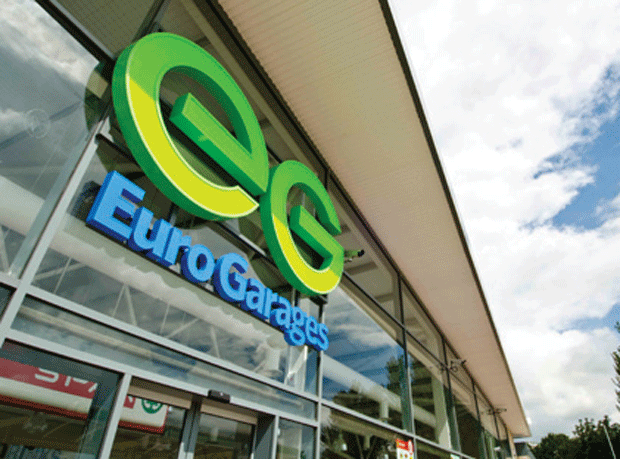
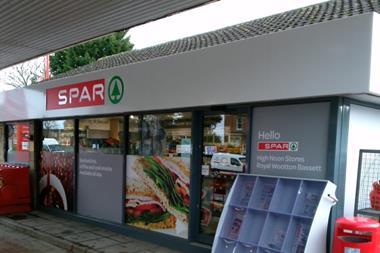
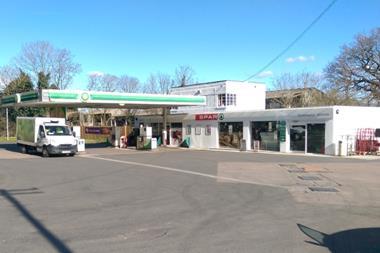



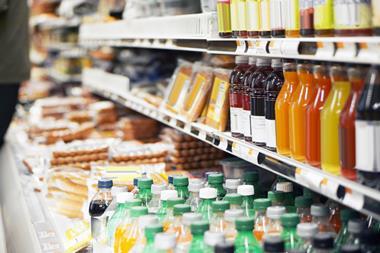
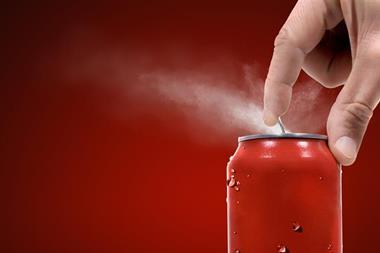
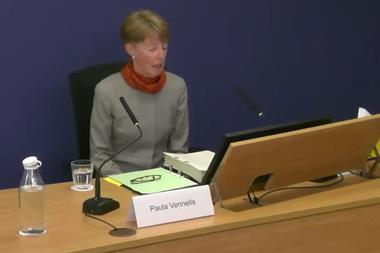
No comments yet